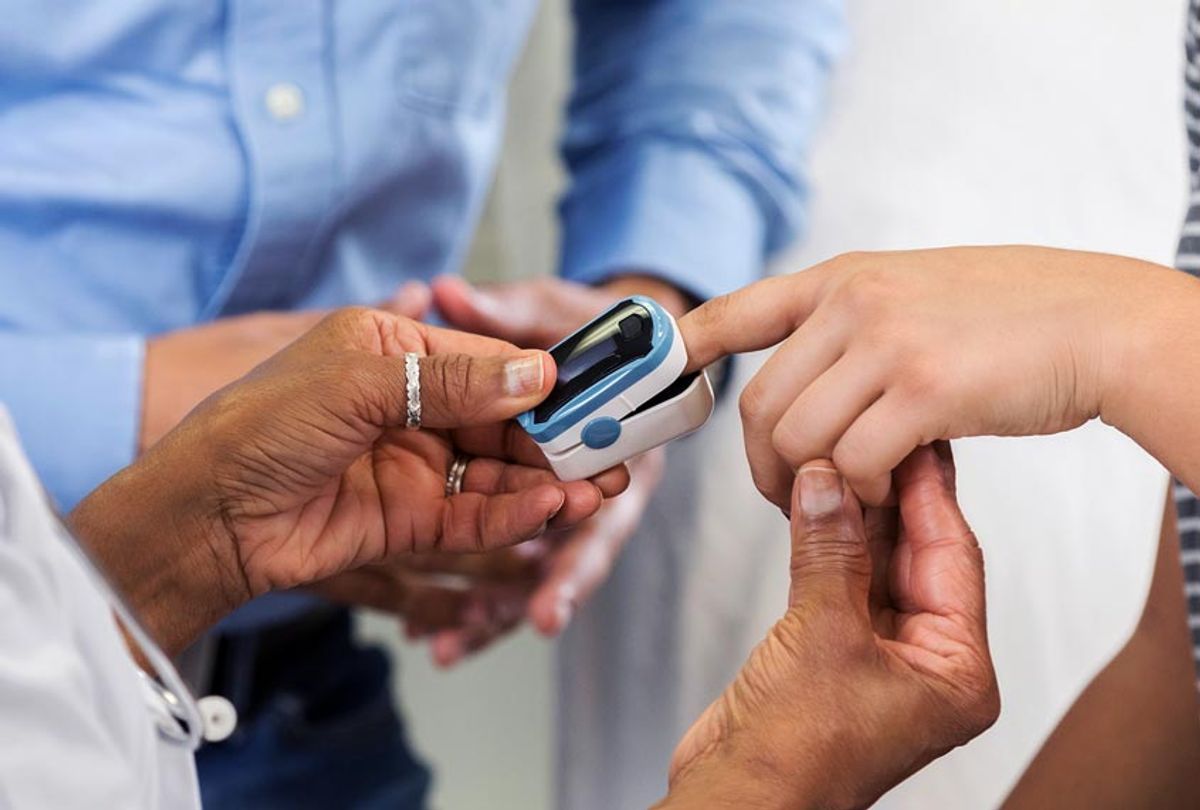A device known as a pulse oximeter, which can measure the oxygen levels in one's blood within seconds after being clipped to one's finger or another body part, is becoming a hot new commodity during the coronavirus pandemic.
Oximeters measure blood oxygen levels by sending photons of a specific wavelength through the skin and observing the measurements. They are most commonly used by people with respiratory issues, or by individuals in professions where monitoring oxygen levels is a paramount concern, such as athletes and pilots. In medicine, of course, they are in many different cases including for routine check-ups. Because COVID-19 can lead to a drop in a patient's blood oxygen levels, the coronavirus era has brought on a minor oximeter craze.
When Dr. Jonathan Raskin, a pulmonologist, came down with coronavirus, he self-quarantined at home and measured his vital signs. "I had a oximeter, a device that measures peripheral oxygen levels — as a pulmonologist it comes with the territory — and my oxygen is normally 98 and it declined to about 94, 93," he told Salon in an interview published Sunday. "At that point I realized it's time to have someone look at me." Raskin believes his life was saved by the decision to go to the hospital when he did.
Doctors have mixed feelings about the need for non-medical professionals to purchase oximeters for home use.
"Keep in mind a pulse ox[imeter] is only good if you have the ability to supply supplemental oxygen," Dr. Eric Cioe-Peña, director of global health at Northwell Health in New Hyde Park, New York, told ABC News. "So it is good for triage for those who are medically frail. But it is not a tool for everyone to have at home because, regardless, if the outcome is your oxygen saturation is low, you will need to go to a hospital."
Because medical supplies are running low, there are other problems that come with people purchasing oximeters when they do not really need them.
"As we expand beds in all these acute care areas that we are creating all over, we won't have these pulse oximeters built into the walls so we are going to need them on these portable devices," Cioe-Peña explained. "Having 90% of America order them on Amazon isn't going to do us a favor."
Though they are not generally part of a household first aid kit, oximeters are relatively inexpensive devices — not too much pricier than a good thermometer. They can found at many pharmacies and grocery stores for as little as $20 to $50, or on big online retailers like Amazon or eBay within a comparable price range.
And while oximeters cannot directly save one's life — if one's oxygen levels were low, one would need an oxygen supply or ventilator at home — they can tell you when or if you need to go to the hospital, as Dr. Raskin attested, and seem to be able to help differentiate whether one's case is severe enough to warrant an ER trip. That fact alone seems like it could save valuable medical resources, and thus lives.
They also seem to provide psychological comfort to those who use them. As TV host Andy Cohen told listeners on Andy Cohen Live last week, "You could scare yourself and think, 'Oh my God, my lungs don't feel right,' but you could use this pulse oximeter and see, 'OK, well actually, you're fine, you're within the range.'"



Shares